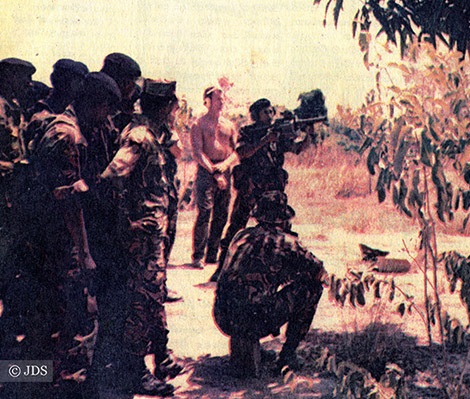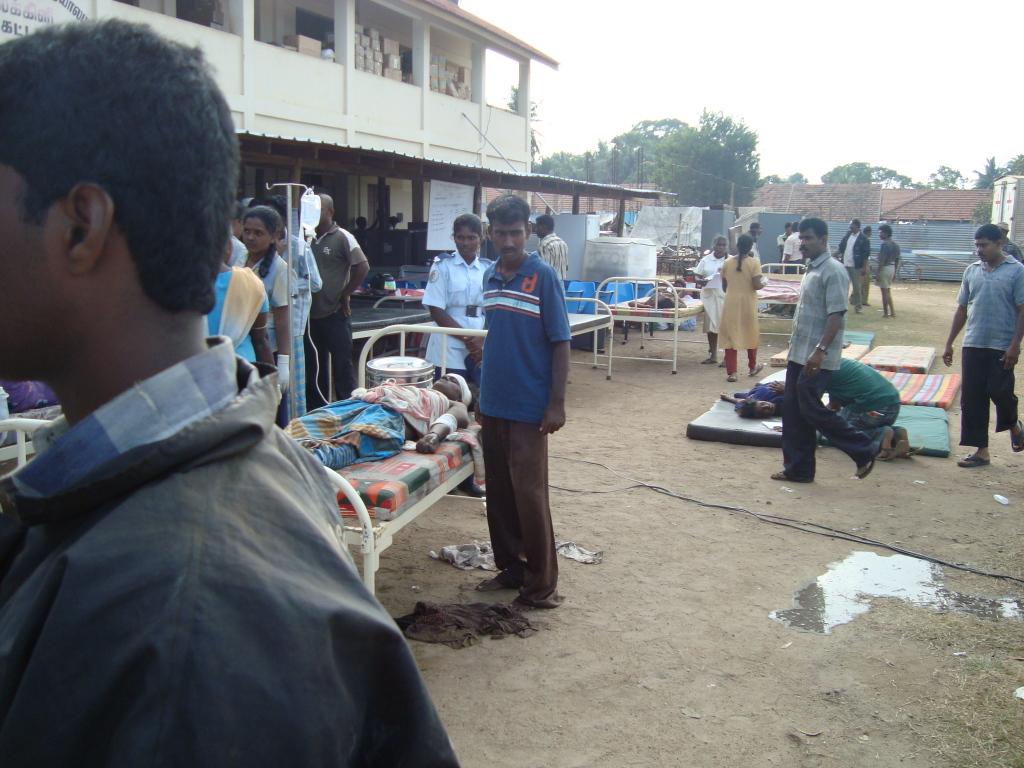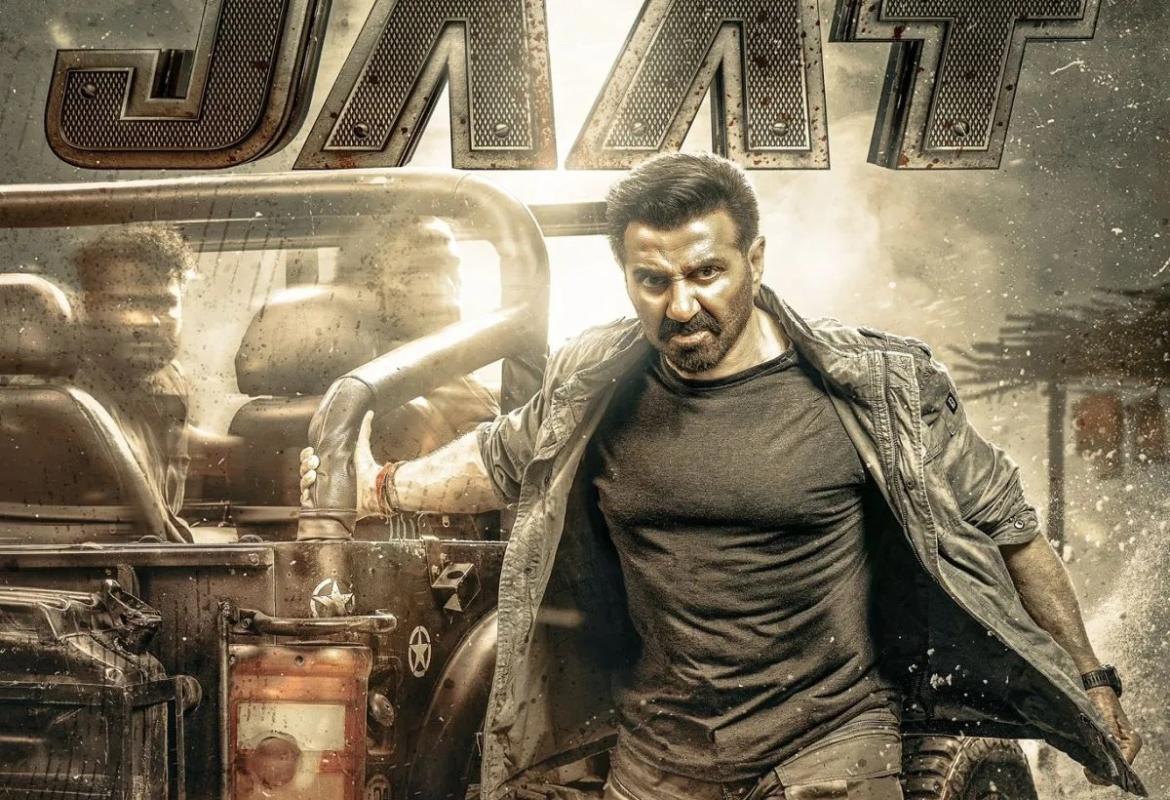
Photograph: A UK mercenary pictured training Sri Lankan soldiers in the 1980s. JDS Lanka
Britain’s Foreign Office plans to shred dozens more files about its relationship with Sri Lanka, in addition to the hundreds of diplomatic it has already destroyed, writes Phil Miller in JDS Lanka this week.
“I found, from British air force files that had survived the shredder, that a senior British intelligence officer made two visits to Sri Lanka in 1979 to advise how to deal with the Tamil militancy,” writes Miller. “In 1980, a British special forces training team visited Sri Lanka to help set up an army commando unit.”

